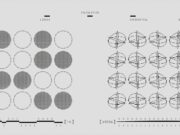What is a WiFi Proxy? It’s a tool that acts as an intermediary between your device and the internet, rerouting your traffic through a different IP address. This helps with online anonymity, bypassing geo-restrictions, and accessing blocked content on public WiFi networks. While it offers some level of privacy, it does not encrypt data like a VPN does.
Many businesses, schools, and individuals use servers for security, content filtering, and speed improvements. But is it the right choice for you?
How Does a Work?
A server redirects your traffic through a different IP address before it reaches the website you are trying to visit. This makes it appear as though you are browsing from another location. It’s commonly used for privacy, security, and website access control.
Understanding Proxy Servers and IP Masking
A proxy server hides your real IP address by replacing it with its own. This helps protect your identity and allows access to restricted websites.
Types of WiFi Proxies
- Anonymous Proxy – Hides your IP address but still identifies as a proxy.
- Elite Proxy – Completely hides your identity and does not appear as a proxy.
WiFi Proxy vs VPN: Key Differences
| Feature | WiFi Proxy | VPN |
|---|---|---|
| Hides IP Address | Yes | Yes |
| Encrypts Data | No | Yes |
| Speeds Up Browsing | Sometimes | No |
| Works on Apps | No (browser only) | Yes (system-wide) |
| Best for | Accessing blocked content | Security & privacy |
If privacy is your top priority, a VPN is the better choice. If you simply need to change your location for content access, a proxy may be sufficient.
Benefits of Using a
WiFi proxy server has several benefits, including:
- Bypassing Geo-Restrictions – Access region-locked websites and services.
- Improving Browsing Speed – Some proxies cache web pages, making them load faster.
- Enhancing Online Privacy – While not as secure as a VPN, it still offers some anonymity.
- Content Filtering – Schools and offices use proxies to block specific websites.
Is a WiFi Proxy Secure?
Not all proxies are secure. Free options often come with risks.
Public WiFi Proxy Risks You Should Know
Using a public WiFi proxy can expose you to:
- Data Theft – Some free proxies log your activity.
- Unencrypted Traffic – Your data isn’t encrypted, making it vulnerable.
- Slow Speeds – Public proxies often get overloaded.
Data Encryption and Online Privacy
A WiFi proxy does not encrypt your data. This means hackers can still intercept it. If you need strong privacy and encryption, consider using a VPN instead.
How to Set Up a WiFi Proxy
Setting up a WiFi proxy server depends on your device. Here’s how you can do it on different platforms.
Configuring a WiFi Proxy on Your Device
- Open Settings → Network & Internet.
- Click on Proxy and enable Manual Proxy Setup.
- Enter the proxy server address and port.
- Save settings and restart your browser.
- Go to System Preferences → Network.
- Select your WiFi network and click Advanced.
- Go to the Proxies tab, enter your proxy details.
- Click OK, then Apply.
Best Services to Use
Here are some trusted WiFi proxy services:
- Smartproxy – Fast and reliable.
- Bright Data – Great for business use.
- HideMyAss – User-friendly and simple.
- ProxySite – Free and easy to use.
Free vs Paid WiFi Proxies: Which One is Better?
Free and paid proxies offer different levels of security.
Can a Free Protect Your Data?
Free proxies have limitations:
- They may log your browsing activity.
- They often display ads or inject malware.
- Speeds are usually slow due to high traffic.
When to Choose a Paid
Paid proxies are more reliable. They offer:
- Better speed and performance.
- No tracking or logging of activity.
- Stronger security measures.
If you use a WiFi proxy regularly, investing in a premium service is recommended.
Conclusion: Should You Use a WiFi Proxy?
A server is useful for basic online anonymity and bypassing geo-restrictions. However, it does not provide encryption. If security is your top priority, a VPN is a better choice.
Frequently Asked Questions
1. Can a WiFi hide my IP address?
Yes, using is legal in most countries.
3. What’s the difference between a web ?
A works specifically for WiFi connections, while a web functions inside a browser for general use.
4. Can a WiFi proxy speed up internet browsing?
Yes, some servers store cached content,























